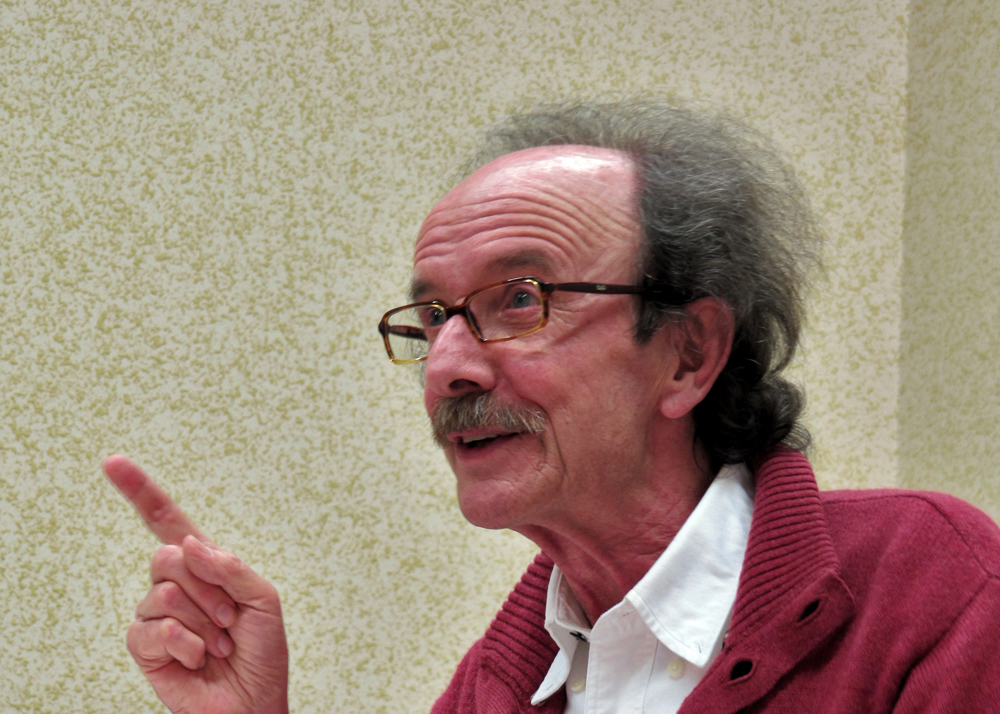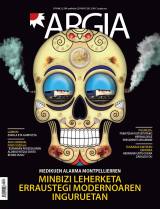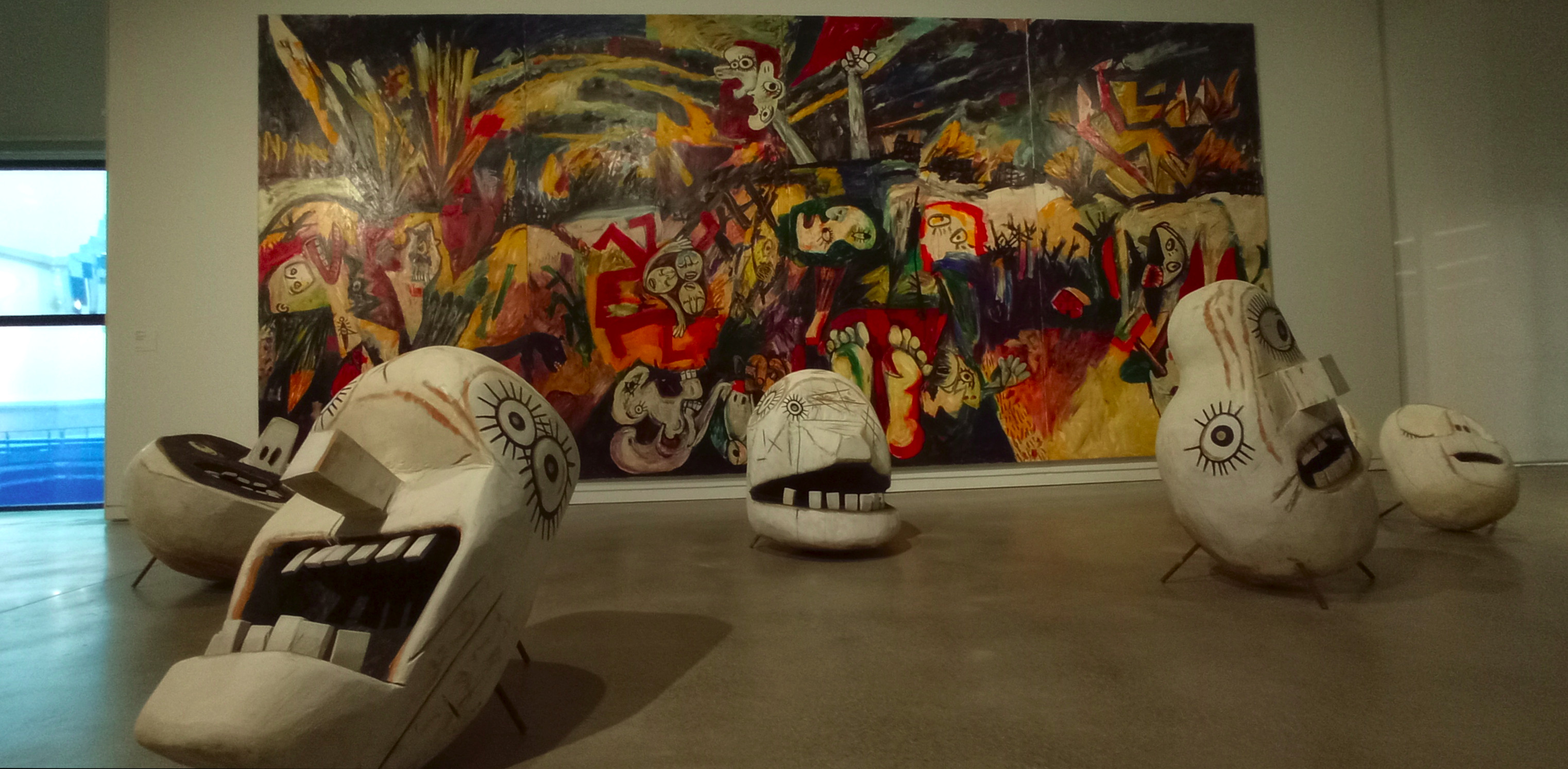Joxan Artze beyond nostalgia
- The news came to the newsroom on January 12: “Joxan Artze, an innovator of Basque poetry and a member of Ez Dok Amairu, has died,” he hastily titled this medium in his digital edition. Since then, many journalistic pieces on the writer's trajectory have been published, the media have completed the general photo about Artze. The coincidences have been few. But what has been left out? And why? There is also an Artze that can be uncomfortable for some, behind the poet who is unanimously acclaimed.

From the media that give importance to the Basque culture to the journalists who have had to go to Wikipedia to know who Artze was, the discourse about the poet highlights his work in the rebirth of Basque culture from the 1960s as a member of Ez Dok Amairu; or how he worked in the recovery and dignification of the txalaparta with his brother Jesus. And how can we not? The letters of Artze became hymns for the Euskaldunes sung by Mikel Laboa. But there is more Artze beyond that “unified story”, as can be seen by making a simple incursion into some of the books that have been mentioned these days. Another thing is if immersed in those waters, the poet applauded by everyone does not become a little uncomfortable for some.
Not much has been mentioned, for example, the powerful poems that Artze wrote in his first books about the oppression and alienation suffered by workers. In line with the avant-garde of the time, the first publication of the usurbildarra brought proposals similar to those called concrete poetry, from Isturitz to Tolosa (1969, self-edition). One of them was the so-called “lanalanalana”, in which the word “work” appears as industrial machinery, repeated over and over again, asking if the word “man” – then it was still used as a synonym of “person” – takes place from time to time before stepping on the machine’s monotony.
This aspect of Artze, which also appears in other issues, can connect with the vital experience of many readers today. The precarious worker of today is devoted both to the worker of then and then, in the book Laino guztien azpian (1973, self-edition):
Man
eats
work, eats slot machine.
Is he MAN? by the
neck we grab humanity
and the world, as we open
the windows with the wings
In these first books one can read the reverse of the promises of development and well-being offered by industrial capitalism. Literary critic Jon Kortazar, in an article published twenty years ago in the journal Lapurdum, explained that the work dehumanizes us. But he also talks about alienation outside the workplace, putting consumerism in the spotlight, or looking at the bourgeoisie with sarcasm – “our alley/rare/old white collar/said: / “Is there a need for beggars in the world, / if not / in whom would we make charity?”, or pointing to the destruction of nature by the contamination of factories. And not in abstract. It refers to the house of Artze, next to the river Oria, from Isturitz in Tolosa.
Blood of
the
ORIA, rotten blood of a people;
there go covered with
pus of moras covering
the stench of fear
As Kortazar explains, “the Oria River in the poems of Artze is not only a used and embarrassed nature, but is also, to a large extent, a symbol of the dependence suffered by all the people”.
Looking for encoding to complete the portrait
In the media account after Artze's death, this facet of the poet has remained, at best, in the background. Like other creators who began in the 1960s, it has only been considered a part that needs to be isolated in order to fit into the framework of the current authority: a simple and sympathetic grandfather who wrote about birds with our beautiful corners; a man situated between tradition and modernity, as if he had made poetry in line with some neo-folkloric shows that are taking place today. An Artze that wrote nice and harmless things, a work that hardly raises problems, because it presents us empty of content.
We forget the social climate that surrounded the creator at all times, we do not mention how he broke it with content and form with what could be expected of a Basque poet. The discourse about it is completed with a reduced version, without being linked to current social tensions or to the more advanced culture. From there can be no more than nostalgic readings about the time and work of pastors, which plunge the public into a closed collective mythology.
This is an operation that has been repeated several times when talking about Ez Dok Amairu: only the “honored” part of what members have left him enters the photo of the time. Those that can still be uncomfortable are left out. Who, for example, talks about artists’ demand for minimum economic dignity in the text “About Our Conduct”? Is it possible that these are issues that have not been fully resolved in the cultural policies that have been implemented?
But these are the things that should perhaps be underlined when we look back 50 years, because the creators do not make the journey blank, but in dialectics with the context that has touched them to live. In this tension, Artze and the company drew a possible Basque Country, something that did not exist, and brought it to society, opening the limits of what was possible. Under all the fogs, he said:
Our
struggle is time and land.
Something that we
and no one else can
do than us.
Lately, I asked Joxe Anton Arze, one of the most beautiful Basque landscape architects, about the names of the plants that had white flowers. It's already in its Mortecine light.
Grapefruit (Narcissus poeticus), Star perico (Stelaria holostea), White hawthorn (Crataegus... [+]
Joxan Artze zendu berriaren arte ibilbidea biltzen du 'Ikimilikiliklik' ikus-entzunezko erakusketak; Tolosako Aranburu jauregian dago ikusgai, datorren otsailaren 3ra bitarte.
Artze was an important figure in the renaissance of Basque culture from the 1960's onwards, along with other members of the avant-garde Ez Dok Amairu movement, set up in the last years of the Spanish dictatorship. Born at Usurbil, Gipuzkoa, in 1939, he died at home on the... [+]
1960ko hamarkadatik aurrera euskal kulturak izan zuen berpizkundean figura garrantzitsua izan zen Artze, Ez Dok Amairuko kideekin batera. Usurbilen jaioa 1939an, ostiral honetan hil da etxean, gaixo egon ondoren.


















